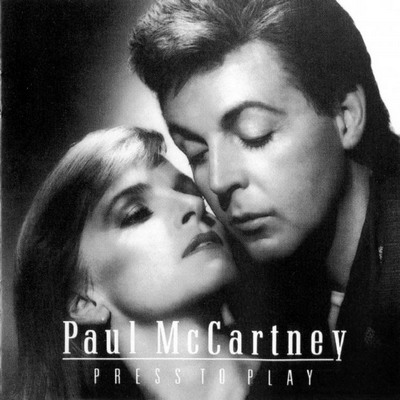
Press to Play (1986)

1. Stranglehold
2. Good Times Coming/Feel the Sun
3. Talk More Talk
4. Footprints
5. Only Love Remains
6. Press
7. Pretty Little Head
8. More Over Busker
9. Angry
10.However Absurd
11.Write Away
12.It's Not True
13.Tough on a Tightrope
14.Spies Like Us *
15.Once Upon a Long Ago *
* CD Bonus Track
It’s one of rock’s quiet tragedies that each member of the greatest band in history managed, at some point, to release an album so directionless, so desperate, that one wonders how such genius could go so thoroughly astray. For Paul McCartney, Press to Play is that album. A career nadir in every sense, it serves as a masterclass in how not to age gracefully in the pop world.
Released in 1986, McCartney was in his mid-forties and clearly feeling the pressure to stay “current.” Unfortunately, his definition of contemporary meant embracing every garish sonic trend of the mid-1980s—synth-heavy production, gated drums, and that peculiar artificial sheen that plagued so much of the decade’s output. Rather than guiding the trends, as he once did, McCartney here is chasing them. And with every misstep, the gap between innovation and imitation becomes painfully clear.
The cover photo says it all: a brooding McCartney posed awkwardly beside his then-wife Linda, looking more like a confused lounge singer than a pop visionary. The music inside fares little better. With the exception of two passable efforts—Press, a mildly infectious single, and Only Love Remains, a not-unpleasant ballad—the rest is a synthetic haze of tinny electronics and overwrought arrangements. This isn’t experimentation; it’s assimilation, and not the good kind.
It wasn’t for lack of trying. McCartney assembled an impressive guest list: Pete Townshend, Phil Collins, and super-producer Hugh Padgham, who’d made magic with The Police, XTC, and Genesis. On paper, it should have worked. In practice, it’s a muddled, charmless affair, weighed down by production so glossy it’s nearly translucent. The songs—already middling—collapse under the burden of their own overdesign.
And in typical McCartney fashion, he left better material on the cutting room floor. Spies Like Us, a goofy yet strangely enjoyable single from the eponymous film, was excluded from the main tracklist and only appears as a bonus on later editions. Similarly, Once Upon a Long Ago, a wistful, melodically rich number, far outpaces almost everything else on the album and could have lent the project some much-needed heart. That both were sidelined only compounds the mystery.
Press to Play failed commercially, and for good reason. It didn’t just miss the charts—it missed the mark entirely. McCartney, ever the pop craftsman, would eventually recover his footing. But here, for perhaps the only time in his post-Beatles career, he sounds not just out of touch, but out of ideas.
Go back to the main page
Go To Next Review